Find an expert
The University of Surrey is home to authoritative voices in a number of areas – including artificial intelligence, nutrition, business and veterinary medicine.
Use our search bar below to find an expert in the topic of your choice or, alternatively, contact the University's Media Team via mediarelations@surrey.ac.uk.
Find an expert
Search for a University of Surrey expert by keyword or topic.
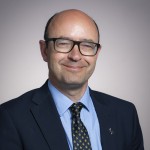
Professor Roberto La Ragione
Interim Pro-Vice Chancellor and Executive Dean for the Faculty of Health and Medical Sciences (FHMS), Professor of Veterinary Microbiology and Pathology
Biography
Roberto graduated in 1995 and then went on to study for a post graduate degree in veterinary microbiology at the Royal Veterinary College (University of London). In 1996 he moved to the government's Veterinary Laboratories Agency (VLA) to undertake a PhD on the pathogenesis of E. coli in poultry. On completion of his PhD studies, Roberto commenced a post-doctoral position at Royal Holloway, University of London, studying E. coli virulence factors and vaccine development.
Since 2001 his work has focused largely on the analysis of the colonisation, shedding and transmission of E. coli O157:H7 by all farmed animal species and he has led a number of commercial, Defra, research council (BBSRC, MRC, EPSRC, AHRC, Innovate) and EU projects in this area. He has published extensively in the area of host-microbe interaction with a particular emphasis on E. coli and Salmonella.
His current research interests focus on the pathogenesis of food-borne pathogens with a particular interest on AMR and the development of intervention strategies including vaccination, pre and probiotics for the control of bacterial pathogens such as Salmonella, Brachyspira and E. coli in food producing animals.
In 2005, Roberto was appointed Head of Pathogenesis and Control at the AHVLA and in 2010 he was appointed Professor of Veterinary Microbiology and Pathology at the University of Surrey. He gained the FRCPath in 2010 and in 2012 was appointed the Associate Dean for Veterinary Strategy in the new School of Veterinary Medicine at the University of Surrey. In 2014 he was appointed to the position of Head of the Department of Pathology and Infectious Diseases and Director of the Veterinary Pathology Centre. In 2019 he was appointed Deputy Head of the School of Veterinary Medicine at the University of Surrey. In 2021 he was appointed Head of the School of Biosciences and In 2024 Interim Pro-Vice-Chancellor and Executive Dean for the Faculty of Health and Medical Sciences.
He is the past president of the Med-Vet-Net Association and the Veterinary Research Club, the current Chair of the Humanimal Trust, a Trustee of the Houghton Trust, a member of the APHA Science Advisory Board, a member of the FSA ACMSF AMR sub-committee and the Chair of the Royal College of Pathologists Veterinary Pathology SAC. Roberto is an Associate member of the European College of Veterinary Microbiology and in 2020 he was awarded Honorary Associateship of the Royal College of Veterinary Surgeons. In 2023, Roberto was awarded the RCPath College Medal.
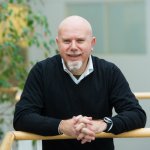
Dr Giovanni Lo Iacono
Senior Lecturer in Biostatistics/Epidemiology
Biography
Gianni is a theoretical physicist specialized in fluid dynamics with an initial background in particle physics. After his PhD at the University of Warwick he started to work at Silsoe Research Institute and then Rothamsted (two agricultural research institutes) studying the motion of aerosols in turbulent flows, searching strategy of insects and epidemiology of plant disease (evolution of pathogens in response to crop resistance).
Then he moved to the Veterinary School at the University of Cambridge working on vector borne diseases and zoonotic diseases. He then spent a few years in Public Health England focusing on the link between environmental changes and infectious diseases. In September 2017 he joined the School of Veterinary Medicine as lecturer in Biostatistics and Epidemiology.
Some measures of esteem
Several papers of mine have been cited in many policy documents, including documents from the WHO, CDC and the recent Sixth Assessment Report (AR6) of the United Nations.
My academic outputs have been cited multiple times in journals of exceptional level like including Nature, The New England Journal of Medicine, The Lancet. The Lancet Infectious Diseases, Cell, Nature Communication, Nature Climate Change, PNAS.
I act as expert reviewer for many journals including: Nature Communication, Nature Climate Change, The Lancet Infectious Disease, The Lancet Global Health, The Lancet Planetary Health and Ecology Letters.
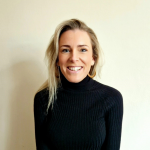
Dr Emma Taylor
Surrey Future Fellow
Biography
Emma was the recipient of the Doctoral College Studentship Award 2018, allowing for her to undertake a PhD working at University of Surrey, School of Veterinary Medicine, and in collaboration with CDC Atlanta, USA, and Global Alliance for Rabies Control. Research generated from her PhD, saw Emma awarded Post Graduate Researcher of the Year 2022, for University of Surrey, before completing her PhD in 2023.
Emma now holds the position of Surrey Future Fellow, a prestigious three-year fellowship allowing her to develop her research. Emma is a member of the London Centre for Neglected Disease Research, and the Diseases of Neglected Communities Research group at Surrey, where her research focuses on:
- Using economic analysis to provide sustainable solutions for disease control.
- Conflict and the risk to disease control.
- Identifying the links between poverty and disease spread.
- Health care inequalities.
Emma is a recognised Fellow at the University of Surrey Institute for Sustainability, and at Royal Society of Arts.

Dr Lindsay Broadbent
Lecturer in Virology
Biography
Dr Lindsay Broadbent joined the Section of Virology at the University of Surrey as a lecturer in July 2022. Previously, Lindsay was a Wellcome Trust ISSF fellow in the Wellcome-Wolfson Institute for Experimental Medicine at Queen’s University Belfast. Her research focuses on respiratory virus-host interactions and subsequent innate immune responses. Dr Broadbent's expertise in developing well-differentiated human primary airway epithelial cell cultures (WD-PAEC) facilitates investigation of virus infection in a physiologically and morphologically relevant model. Her current research is directed towards the role of respiratory viruses in longer term lung damage and the development of chronic lung disease.
In addition to her research Dr Broadbent is actively involved with science outreach and engagement and has been involved in hundreds of media appearances.
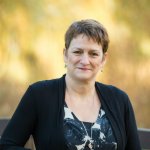
Professor Jill Maben
Professor of Health Services Research and Nursing
Biography
Jill is a nurse and social scientist and her research focuses on supporting staff to care well for patients. Jill qualified as a Registered nurse at Addenbrookes in Cambridge and studied History at UCL, before undertaking her Masters in Nursing at King's College London and completing her PhD at the University of Southampton. She completed her PGCE at the London School of Hygiene and Tropical Medicine in 2007. Jill was deputy Director (2007-2010) and Director (2011-2014) of the Policy Research Programme's National Nursing Research Unit at King's College London.
Jill was awarded an OBE in June 2014 for services to nursing and healthcare. In 2013 she was in the Health Services Journal ‘Top 100 leaders’ and was also included on Health Service Journal’s inaugural list of Most Inspirational Women in Healthcare the same year.
Jill is passionate about creating positive practice environments for NHS staff and supporting staff in the work they do caring for patients and her programme of research has highlighted the links between staff experiences of work and patient experiences of care- https://www.journalslibrary.nihr.ac.uk/programmes/hsdr/081819213/#/ This was one of the first studies to demonstrate relationships between staff wellbeing and patient experience at the team and individual level demonstrating that staff wellbeing is an important antecedent of patient care performance.
Jill's doctoral work examined what supported and what prevented newly qualified nurses implementing their ideals and values in practice, highlighting how ideals and values of new nursing students can become compromised and crushed in poor work environments. She also recently completed the first national evaluation of Schwartz Centre Rounds in the UK: “A Longitudinal National Evaluation of Schwartz Centre Rounds®: an intervention to enhance compassion in relationships between staff and patients through providing support for staff and promoting their wellbeing” [https://www.journalslibrary.nihr.ac.uk/programmes/hsdr/130749/#/] she has developed a short film from this work: Understanding Schwartz Rounds: Findings from a National Evaluation https://www.youtube.com/watch?v=C34ygCIdjCo
Other recent studies include an evaluation of patient and staff experiences and safety outcomes of a move to 100% single hospital bedrooms. [https://www.journalslibrary.nihr.ac.uk/programmes/hsdr/10101342/#/] and interventions to support healthcare staff including Schwartz Center Rounds and to improve relational care for older people in hospital [https://www.journalslibrary.nihr.ac.uk/programmes/hsdr/1212910/#/] The single room evaluation work is now being replicated in Australia; Holland and Denmark.
Recent studies include the Impact of Covid on Nurses (ICON) (Burdett Trust; Florence Nightingale Foundation and the Colt Trust) and NIHR studies:
Care Under Pressure 2: Caring for the Carers a realist review of interventions to minimise the incidence of mental ill-health in nurses, midwives and paramedics: www.journalslibrary.nihr.ac.uk/programmes/hsdr/NIHR129528/#/ and
Strategies to address unprofessional behaviours among staff in acute healthcare settings: a realist review: www.journalslibrary.nihr.ac.uk/programmes/hsdr/NIHR131606/#/
See: https://workforceresearchsurrey.health/
Current studies include:
Staff Wellbeing: Innovative partnerships to enable staff to care well under pressure and thrive at work: https://fundingawards.nihr.ac.uk/award/NIHR159772
Understanding how unprofessional behaviour in English NHS Trusts can be prevented and reduced: a mixed-methods study: https://www.fundingawards.nihr.ac.uk/award/NIHR163519
Enhancing voice in healthcare organisations (ENVOI):
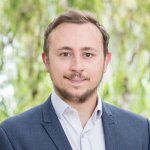
Dr Robert Kerrison
Associate Professor and Co-Lead for Cancer Care
Biography
Robert Kerrison is an Associate Professor in Cancer Care and Co-Lead for the Cancer Care Expert Group (School of Health Sciences). Rob's ongoing programme of work focuses on inequalities across the cancer pathway, from symptom awareness, screening and early diagnosis, through to treatment. He holds several awards as principal investigator, including a prestigious Cancer Research Fellowship and Breast Cancer Now Project Grant. He is also a co-investigator on a number of research programmes, including the NIHR Policy Research Unit for Cancer Awareness, Screening and Early Diagnosis, and an NIHR Health and Social Care Delivery Research Award ('Cancer-Learn').
Rob's external appointments include Co-chair of the World Endoscopy Organisation (WEO) Coalition to Reduce Inequities in Colorectal Cancer Screening and Co-chair of the Multi-Cancer Early Detection (MCED) Test Consortium's Communication Work group.
His internal roles include Open Research Champion for the School of Health Sciences, Module Lead for the Research Design and Methodology and Theme Lead for Individuals, Organisations and Society.
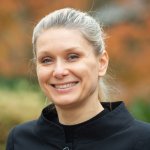
Dr Agnieszka Lemanska
Senior Lecturer in Health Data Science
Biography
Agnieszka first trained as a pharmacist and graduated with MSc in Pharmacy in 2005. She then studied for her PhD in Statistics and Machine Learning at the Centre for Chemometrics, University of Bristol (scholarship funded by GlaxoSmithKline). She has been working as a Senior Lecturer at the Faculty of Health and Medical Sciences, University of Surrey since 2012, where she leads research and supports teaching activities.
Agnieszka holds a joint appointment. Since 2018 she has been seconded for 50% of her time to the Department of Data Science at the National Physical Laboratory. NPL is UK's measurement institute and Agnieszka's role as Senior Scientist is to contribute to NPL's capability for improving the quality of healthcare measurements and digitalisation of healthcare data.
In 2021 to 2022, Agnieszka undertook MRC funded secondment to the Bennett Institute for Applied Data Science, University of Oxford delivering research within the OpenSafely platform.
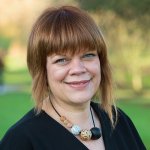
Professor Cath Taylor
Professor of Healthcare Workforce Organisation and Wellbeing
Biography
I am Professor of Healthcare Workforce Organisation and Wellbeing in the School of Health Sciences at the University of Surrey. I have worked in Health Services Research since 1997, following completion of a Psychology degree at Swansea University. My academic career began at Imperial College London (1997-2002) followed by Kings College London (2002-2017).
My main research interests are improving the wellbeing of the NHS workforce and assessing and improving multidisciplinary team working in healthcare teams. In relation to the wellbeing of NHS staff, I have conducted national cohort studies of mental health in hospital consultants, and worked alongside Professor Jill Maben (also at University of Surrey) to complete a national evaluation of Schwartz Center Rounds in the UK, funded by the NIHR. I am currently funded by NIHR to complete a realist synthesis aimed at understanding how to improve mental wellbeing in nurses, midwives and paramedics. My work in relation to multidisciplinary teams led to the development of a cancer multidisciplinary team assessment and feedback tool (named MDT-FIT) that won QiC Oncology Digital Innovation of the Year in 2016. I am currently working with Surrey and Sussex Cancer Alliance to support and evaluate improvements to multidisciplinary team meetings across three tumour pathways.
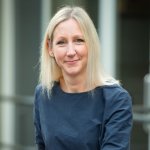
Professor Katriina Whitaker
Professor of Psychology and Co-Lead for Cancer Care
Biography
Katriina Whitaker is Professor of Psychology in the School of Health Sciences at the University of Surrey and co-leads the Cancer Care group with Rob Kerrison. Katriina's own programme of work focuses on early diagnosis and cancer, with a particular interest in healthcare-seeking and health inequalities. Katriina is a Chartered Psychologist and was made a Fellow of the British Psychological Society in 2017. Katriina is an expert review panel member for Cancer Research UK's Early Diagnosis & Detection Trials, Behavioural Health System and Health Economics research panel.
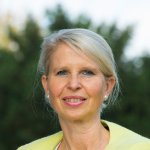

Professor Emily Farran
Professor in Developmental Psychology
Biography
I am a Professor of Cognitive Development, at the University of Surrey, UK, where I direct the Cognition, Genes & Developmental Variability Lab. I completed my PhD at the University of Bristol in 2001. I then took on a lectureship position at the University of Reading. I then moved to the UCL Institute of Education in 2008, before joining the University of Surrey in 2018. The broad aim of my research is to characterise typical and atypical development of cognitive functions within the context of the developing brain. This includes a focus on the relationship between spatial thinking and Science and Mathematics achievement. I was awarded the 2024 Impact and Engagement award from the Developmental Psychology section of the British Psychological Society. My research has been funded by the Economic and Social Research Council, the British Academy, the Leverhulme Trust, the Nuffield Foundation, Wellcome, the Education Endowment Foundation, the Waterloo Foundation, Autour des Williams, the Williams Syndrome Foundation, and Fondation Jerome Lejeune.
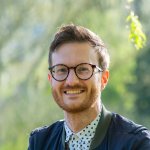
Dr Fabio Fasoli
Senior Lecturer in Social Psychology
Biography
I received my PhD in 2011 from the University of Trento (Italy). After that, I held postdoctoral fellowships at CITEC/University of Bielefeld, the University of Padua, ISCTE-IUL, and the University of Milano-Bicocca. In October 2016, I joined the University of Surrey as a Marie Sklodowska-Curie Fellow and have been here ever since. I am the Programme Leader for the Social Psychology MSc, the co-director of the Sex, Gender, and Sexualities Research Centre, and the current Chair of the University Rainbow Network. I am also the Secretary of the International Association of Language and Social Psychology (IALSP)
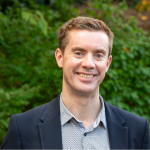
Professor Benjamin Gardner
Professor in Psychology; MSc Behaviour Change Programme Lead
Biography
Prof Benjamin Gardner is recognised internationally as an expert researcher, lecturer and public speaker in the psychology of habitual behaviour. Over 15+ years of behavioural science research, he has published over 180 research papers and book chapters, mostly exploring how the concept of 'habit' can be drawn on to understand and change everyday human behaviours, with especial focus on health behaviours. He has given talks and hosted seminars and workshops with academic, practitioner, commercial and public audiences across the UK and Europe, and in Australia, Canada, Singapore, and USA. As of September 2025, his work has been cited over 18,000 times, including in more than 200 policy documents.
Prof Gardner is founder and co-Director of the Habit Application and Theory group, and co-Lead of the European Health Psychology Society Habit Special Interest Group. He holds editorial board positions at Health Psychology Review and Social Science & Medicine, and is a Consultant at British Journal of Health Psychology.
Prof Gardner's research relates to psychological processes that affect all behaviours. Nonetheless, the main behaviours that he has focused on to date have been health (e.g., sedentary behaviour and sitting, physical activity, dietary consumption) and environmentally relevant actions (e.g., water consumption, travel mode choice). He has led funded research projects to develop novel habit-based interventions to reduce sedentary behaviour in office workers and older adults, and contributed habit and behaviour change expertise to funded work (e.g. MRC, NIHR) supporting health promotion among older adults, office workers, parents and children.
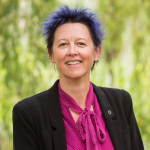
Professor Christine Rollier
Professor of Vaccinology, Interim Head of School of Biosciences
Biography
I studied biochemistry and obtained a PhD at the University of Lyon, France, in 2000, working on DNA immunization as a therapeutic approach against chronic Hepatitis B Virus infection, in collaboration with the Institut National de la Sante et Recherche Medicale (INSERM), Lyon, France. I proceeded to work on novel vaccine development and cellular immunity against Hepatitis C Virus chronic infection at the Biomedical Primate Research Center, The Netherlands.
In 2007 I joined the Jenner Institute at the University of Oxford as a senior immunologist, to work on improvements of vaccine vectors against malaria. I then moved to the Oxford Vaccine Group in 2010, bringing my expertise of viral vectored vaccine platform and preclinical research, and became Associate Professor in Vaccinology. I started, developed and led the Novel Vaccine Development team involved in the creation, design, preclinical and early clinical studies of new and improved vaccines against bacterial diseases and infectious diseases affecting children. My research activities, funded by the Medical research Council, Innovate UK, the Oxford Biomedical Research Centre, and several charities, include the conception, design, pre-clinical and early clinical development of new and improved vaccines against bacterial infections such as caspular group B meningococcus, plague, Q fever, enteric fever, pertussis, gonorrhoea and Respiratory Syncitial Virus.
In 2021 I joined the University of Surrey as Professor of Vaccinology.

Professor Jane Ogden
Professor of Health Psychology
Biography
I'm a Professor of Health Psychology and I've been researching and writing about eating behaviour and weight management for over 30 years. My research interests include obesity management, aspects of women’s health and communication in healthcare. I often share my expertise and I'm a frequent contributor to magazines, radio and television including Secret Eaters, The Truth about Fat and The Truth about Take Aways for Channel 4.
I've written several books including a textbook in health psychology, now in its sixth edition, and Thinking Critically about Research which is for anyone interested in research. I've also authored books for a more general audience, including The Psychology of Dieting and The Good Parenting Food Guide.
I teach psychology, nutrition, dietetics and veterinary science students to think psychologically about health. I am also the Programme Leader of the PhD Psychology course.
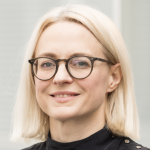
Professor Angelica Ronald
Professor of Psychology and Genetics
Biography
In 2023 I moved to the University of Surrey as Professor of Psychology and Genetics. Here is a short bio:
- I studied Experimental Psychology at the University of Oxford, graduating in 2000
- I received my PhD in Quantitative Genetics from King's College London
- My postdoc was funded by an Autism Speaks fellowship in which I gained training in Molecular Genetics
- I joined Birkbeck, University of London in 2007 as a lecturer, where I established the Genes Environment Lifespan (GEL) lab
- I became Professor of Psychology and Genetics in 2017
- I co-founded the London Genetics Network in 2020

Dr Eleanor Ratcliffe
Senior Lecturer in Environmental Psychology
Biography
My research mainly concerns restorative environments, or places which help people to recover psychologically from stress and/or cognitive fatigue. I focus particularly on sensory aspects of these environments (e.g., sounds and soundscapes) and on how bonds between people and place can enhance links between environment and wellbeing. I completed my PhD at Surrey in 2015, followed by two periods of postdoctoral research (2015-2017 at Tampere University, Finland, and 2017-2018 at Imperial College London), before returning to Surrey in January 2019.

Dr Adam Collins
Associate Professor of Nutrition
Biography
I have been a qualified nutritionist for over 20 years, completing my undergraduate degree in 1996 before completing an MSc in Nutrition and metabolism and a PhD focusing on energy expenditure and body composition. My ongoing interests lie in obesity, exercise nutrition, body composition and energy metabolism all as can be applied to weight loss/maintenance and metabolic health. Current research includes exercise intensity and energy balance, intermittent fasting, meal timing and composition. Specifically the use of carbohydrate manipulation for metabolic health
I have been committed to undergraduate and postgraduate nutrition education for over 15 years, joining the University of Surrey in 2006. As programme leader for BSc and MSc Nutrition, I am heavily involved in the management and delivery of nutrition education at Surrey.
In 2005, I started a private nutrition consultancy (NutrifficTM), working with companies as a nutrition consultant, undertaking one-to-one nutritional consultations, and commissioned lectures and workshops. I am currently a nutrition consultant for Form (Formnutrition.com) and previously with a commercial weight management company (EurodietTM). I continue to develop external links and collaborations whilst fulfilling a full-time role at Surrey.
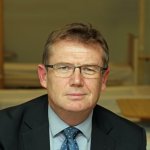
Professor Derk-Jan Dijk
Professor of Sleep and Physiology, Director Surrey Sleep Research Centre
Biography
Derk-Jan Dijk PhD, FRSB, FMedSci, is Professor of Sleep and Physiology, Distinguished Professor at the University of Surrey, Director of the Surrey Sleep Research Centre. He has been a Royal Society-Wolfson Research Merit Award holder, a Senior Research Associate in the Institute of Pharmacology at the University of Zurich, an Assistant Professor of Medicine at Harvard Medical School, and an Associate Neuroscientist in the Brigham and Women's Hospital in Boston.
Dr Dijk has 40 years of experience in clinical sleep research. His current research interests include the circadian and homeostatic regulation of sleep; the contribution of sleep to brain function in healthy ageing and dementia; the role of circadian rhythmicity in sleep regulation; identification of novel-biomarkers for sleep debt status and circadian rhythmicity, susceptibility to the negative effects of sleep loss; understanding age and sex related differences in sleep physiology and sleep disorders. His research has been or is is funded by the Dementia Research Institute, the Biotechnology and Biological Science Research Council, the Wellcome Trust, The Air Force Office of Scientific Research, Philips Lighting and several major pharmaceutical companies.
Dr Dijk has published more than 300 research and review papers in the area of sleep and circadian rhythms. Dr Dijk is invited frequently to speak at international sleep meetings and he has given opening and plenary lectures for the joint meeting of the Canadian Sleep Society, American Academy of Sleep Medicine and Sleep Research Society, The European Sleep Research Society and the Hong Kong Sleep Medicine Society.
Dr Dijk has served as an Associate and Deputy Editor to SLEEP and Editor of the Journal of Sleep Research. He also serves as consultant to the pharmaceutical industry.
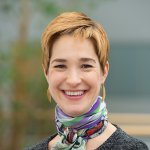
Professor Amelia Hadfield
Director, CIFAL Surrey. Co-Director of the Institute for Sustainability. Associate Vice-President for External Engagement. Founding Director, Centre for Britain and Europe.
Biography
Amelia joined the University of Surrey in January 2019 as Head of the Department of Politics, and Chair in European and International Affairs. Previously she worked as Director of the Centre for European Studies (CEFEUS), a Jean Monnet Centre of Excellence at Canterbury Christ Church Uni (2013-2018), after positions in Brussels at the Vrije Universiteit Brussels and the Institute for European Studies, where she directed the Euromaster degree, as well as the Educational Development (EDU). Amelia is a long-standing Jean Monnet Chair in European Foreign Affairs, allowing her to successfully obtain Erasmus+ funding for the University of Surrey’s Centre for Britain and Europe (based in the Department of Politics), establishing it in 2020 as a Jean Monnet Centre of Excellence. Amelia’s researching, teaching, consulting & postgrad supervising covers a wide range of areas on EU foreign and security policy, as well as new forms of EU-UK relations. These include Common Foreign and Security Policy, Common Security and Defence Policy, EU-US and EU-Canada relations, EU-Russia relations, EU Neighbourhood Policy, EU Development policy (with a focus on sub-Saharan Africa), as well as Arctic & northern governance issues. Additional areas of interest include foreign policy analysis, international and diplomatic history, the role of sovereignty in political history, International Relations theory, international political economy, public policy analysis, the Commonwealth and EU education policy. Amelia is regularly called upon as a guest speaker, external supervisor, research partner, consultant and media pundit on areas of EU foreign affairs, and of late, EU-UK relations. In January 2021, Amelia was appointed Dean International of the University of Surrey, leading the International Engagement Office in supporting the strategic goals of the university on partnership with other universities and networks world-wide, enhanced cutting-edge research cooperation, as well as staff/student mobility. From October 2023, Amelia was appointed Associate Vice-President of External Engagement, helping to deliver the University of Surrey’s international strategies, alongside community engagement, public affairs, and developing new partnerships at local, regional, national and international level.
In December 2024, as a result of her work with UNITAR, the UN’s research and capacity building agency, and complementing her role as Co-Founder and Co-Director of the Centre of Excellence on Ageing (April 2023), Amelia was appointed inaugural Director of the CIFAL Surrey Centre, a knowledge exchange hub based within the Institute for Sustainability, dedicated to training and capacity building climate literacy, climate leadership and sustainability more broadly.

Dr Luciano Rispoli
Senior Lecturer
Biography
Luciano received his undergraduate degree in Economics in 2009 from Bocconi University. During his undergraduate degree he spent 6 months as an exchange student at the Australian National University.
He then obtained a MSc in International Economics and Finance with distinction from the University of Sheffield in 2011. He then pursued his doctoral studies at Birkbeck College - University of London where he also worked as a Teaching Assistant and sessional Associate Lecturer. At Birkbeck, he was awarded an honourable mention for Best PhD thesis in the School of Business, Economics and Informatics.
In 2016 he joined the University of Warwick as a Teaching Fellow where he taught Monetary Economics (MSc) and undergraduate micro and macroeconomics. In 2019 he joined the School of Economics at Surrey University where he currently teaches :
- Economic analysis with matrices (BSc),
- Corporate Finance (BSc),
- Fundamentals of Blockchain (BSc),
- Applied Econometrics (MA),
- Financial Econometrics (MSc),
- Bayesian Estimation of DSGE models (CIMS Summer School)

Dr Emily Setty
Associate Professor in Criminology
Biography
I am an Associate Professor of Criminology, researching young people’s digital sexual cultures, online harms, and the evolving landscape of Relationships and Sex Education (RSE). My work explores how young people navigate consent, risk, and intimacy in digital contexts, and how education, policy, and practice can better support them. I regularly work on collaborative research and evaluation projects with organisations tackling sexual harms, digital ethics and young people's wellbeing.
Bringing together over a decade of research, I am leading efforts to "Reimagine RSE"—moving beyond risk-focused models to more inclusive, critically engaged and participatory approaches. This builds on my extensive collaborations with young people, educators, policymakers and frontline practitioners to co-design evidence-based interventions and educational resources.
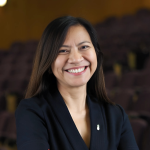
Professor Iis Tussyadiah
Dean of Surrey Business School
Biography
Iis Tussyadiah is Professor of Intelligent Systems in Service, Dean of Surrey Business School, and Fellow of the Surrey Institute for People-Centred Artificial Intelligence at University of Surrey. Iis is an advocate of utilising technology to forge new pathways to a better future. She is internationally recognised for her contributions to research on digital transformation in the services sector, particularly in travel and tourism. Her major work has influenced international and national policies on climate change mitigation, data privacy, the role of AI in the European Green Deal, global benchmarks for tourism development, and digital employment. Iis has received numerous awards, including Clarivate’s Highly Cited Researcher in 2021 and 2022 in the field of Social Sciences. In 2024, she was awarded Honorary Doctorate in Business Studies by University of Eastern Finland.
Iis is a strong proponent of the transformative approach to education, research, and partnerships to realise the academic missions of higher education institutions. As a first-generation university graduate, she has benefited directly from this transformation. This is reflected in the Surrey Business School's culture, Incubating Vibrant Futures 2024-2030, and previously the School of Hospitality and Tourism Management (SHTM)'s Global Leadership Strategy 2021-2024. Read her interview with Higher Education Digest on Leading with purpose in an AI future.
She has held leadership positions in various industry organisations, including President of the International Federation for Information Technologies and Travel & Tourism (IFITT) and founding member of the Alliance for Innovators and Researchers in Tourism and Hospitality (AIRTH). She also contributed to the 2021 and 2024 editions of the World Economic Forum's Travel & Tourism Development Index (TTDI) and the World Travel & Tourism Council's Women Empowerment Initiative.
Iis obtained her Ph.D. in Information Systems from Tohoku University, Japan, where she received the GSIS Dean's Award for Excellent Achievements in Doctoral Studies in 2007. She held academic positions at Temple University and Washington State University, USA.

Dr Erin Ling
Senior Lecturer in Artificial Intelligence and the Future of Work
Biography
Dr Erin Chao Ling is a Senior Lecturer in Artificial Intelligence (AI) and the Future of Work, and Director of Executive Education at Surrey Business School, University of Surrey. She is also a Founding Fellow of the Surrey Institute for People-Centred AI. Erin's work sits at the intersections of AI, people, culture, and society, with a particular focus on how AI transforms businesses and service industries such as hospitality, tourism, and broader consumer-facing sectors. Her research examines the implications of AI for individuals, organisations, and society, spanning human-AI interaction, consumer behaviour, workforce transformation, and the ethical and responsible design of AI-enabled systems.
Currently, Erin is engaged in various cutting-edge research projects, including human-AI team collaboration in digital marketing, AI skills and education/training, adoption of AI Assistants and service robots, and the impact of generative AI on employee performance and well-being. She strongly advocates for responsible and ethical AI, driven by a genuine desire to enhance the quality of human life and positive societal impact.
Erin's research has been published in leading international journals including Journal of Travel Research, Annals of Tourism Research, International Journal of Hospitality Management, and Psychology & Marketing, and has received international Best Article awards. She is currently serving on the Editorial Board of the Journal of Travel Research (ABS4).
In addition to her academic contributions, Erin has made notable appearances as a speaker and writer on the subject of AI and jobs. Her insights have been featured in renowned global media including The Guardian, SkyNews, FORTUNE, Yahoo Finance, and Business Insider. Erin participates in All-Party Parliamentary Group (APPG) meetings related to Youth Affairs and AI, contributing to national discussions on AI policy, regulation, and future of work. Erin also provides consultancy to government agencies (e.g., the UK Foreign Commonwealth and Development Office) on responsible AI adoption and ethical governance.
Erin completed her PhD in Tourism and Hospitality Management at the University of Surrey, specialising in user acceptance of AI Assistants in travel. She obtained her MSc in Management from the University of Bristol, UK. Prior to academia, she founded and led a business services company and served as General Manager of a travel agency in China, bringing first-hand entrepreneurial and industry experience into her teaching and research.

Professor Ryan Abbott
Professor of Law and Health Sciences
Biography
Professor Abbott is highly regarded for his scholarship, teaching, and professional activities. He is the author of The Reasonable Robot: Artificial Intelligence and the Law published in 2020 by Cambridge University Press, and he has published widely on issues associated with law and technology, health law, and intellectual property in leading legal, medical, and scientific books and journals. Professor Abbott’s research has been featured prominently in the media, including in the New York Times, Financial Times, Forbes, and VICE. He routinely gives keynote lectures and presents internationally in academic (e.g., MIT, Stanford, Oxford, Cambridge), government (e.g., World Intellectual Property Organization, World Trade Organization, UK Intellectual Property Office), and industry (e.g., AIPPI, American Chemical Society, INTERPAT) settings. Managing Intellectual Property magazine named him as one of the fifty most influential people in intellectual property in 2019.
Professor Abbott has worked as a partner in legal practice, and he has been outside general counsel to life science companies. He has served as a consultant or expert for international organizations, academic institutions and non-profit enterprises including the United Kingdom Parliament, European Commission, World Health Organization (WHO) and the World Intellectual Property Organization (WIPO). Professor Abbott has also worked as an expert witness which has included testifying in U.S. federal court.
Professor Abbott is a licensed physician, attorney, and acupuncturist in the United States, as well as a solicitor advocate in England and Wales. He is board certified by the American Board of Legal Medicine. Professor Abbott is a graduate of the University of California, San Diego School of Medicine (M.D.), the Yale Law School (J.D.), the University of Surrey School of Law (Ph.D.) as well as a Summa Cum Laude graduate from Emperor's College (M.T.O.M.) and a Summa Cum Laude graduate from University of California, Los Angeles (B.S.). He is a registered patent attorney with the U.S. Patent and Trademark Office and a member of the California and New York State Bars. He is also a Senior Fellow of the Higher Education Academy (SFHEA)
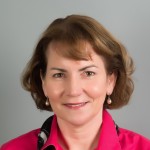
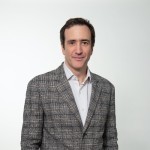
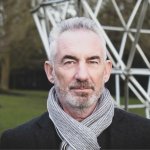
Professor Tim Jackson
Director of the Centre for the Understanding of Sustainable Prosperity (CUSP)
Biography
Tim Jackson is an ecological economist and writer. Since 2016 he has been Director of the Centre for the Understanding of Sustainable Prosperity (CUSP) at the University of Surrey. CUSP is a multidisciplinary research centre which aims to understand the economic, social and political dimensions of sustainable prosperity. Its guiding vision for prosperity is one in which people everywhere have the capability to flourish as human beings – within the ecological and resource constraints of a finite planet.
Tim has been at the forefront of international debates on sustainability for three decades and has worked closely with the UK Government, the United Nations, the European Commission, numerous NGOs, private companies and foundations to bring economic and social science research into sustainability. During five years at the Stockholm Environment Institute in the early 1990s, he pioneered the concept of preventative environmental management—a core principle of the circular economy—outlined in his 1996 book Material Concerns: Pollution Profit and Quality of life. From 2004 to 2011 he was Economics Commissioner for the UK Sustainable Development Commission where his work culminated in the publication of his controversial and ground-breaking book Prosperity without Growth (2009/2017) which has subsequently been translated into 17 foreign languages. It was named as a Financial Times ‘book of the year’ in 2010 and UnHerd’s economics book of the decade in 2019.
Tim holds degrees in mathematics (MA, Cambridge), philosophy (MA, Uni Western Ontario) and physics (PhD, St Andrews). He also holds honorary degrees at the University of Brighton in the UK and the Université Catholique de Louvain in Belgium. He is a Fellow of the Royal Society for the Arts, the Academy of Social Sciences and the Belgian Royal Academy of Science. In 2016, Tim was awarded the Hillary Laureate for exceptional international leadership in sustainability. In addition to his academic work, he is an award-winning dramatist with numerous radio-writing credits for the BBC. His most recent book is Post Growth – life after capitalism (Polity 2021).
Research
From 2013 to January 2017, Tim held a Professorial Research Fellowship on Prosperity and Sustainability in the Green Economy (PASSAGE). From 2010 to 2014 he was Director of the Sustainable Lifestyles Research Group (SLRG), which aimed to develop evidence-based advice to policy makers about realistic strategies to encourage more sustainable lifestyles. From 2006 to 2011 he was Director of the ESRC Research group on Lifestyles, Values and Environment (RESOLVE), a novel cross-disciplinary institution at the time, set out to unravel the complex links between lifestyles, values and the environment. Following his Professorial Research Fellowship on the social psychology of sustainable consumption (2003–2005), Tim published his widely cited report Motivating Sustainable Consumption. A respective Earthscan ‘Reader’ in Sustainable Consumption was issued in 2006. From 1995 to 2000 Tim held an EPSRC fellowship on the Thermodynamics of Clean Technologies. During five years at the Stockholm Environment Institute in the early 1990s, he pioneered the concept of preventative environmental management—a core principle of the circular economy framework—outlined in his 1996 book Material Concerns: Pollution Profit and Quality of life.
Since 2010, Tim has been engaged in an ambitious collaborative project to build a new ecological macroeconomics. He and Prof Peter Victor from York University, Canada are developing the conceptual basis for an economy in which stability no longer depends on relentless consumption growth.
Advisor
Tim has served in an advisory capacity for numerous Government departments, Intergovernmental organisations, non-governmental organisations, private sector companies, and delivery agencies. From 2004 to 2011, Tim was Economics Commissioner on the UK Sustainable Development Commission (SDC), where he led the Commission’s work on redefining prosperity, sat on the UK Government’s Sustainable Consumption Roundtable and contributed to the UK’s 2005 Sustainable Development Strategy. His work for the SDC culminated in the publication of his groundbreaking book Prosperity without Growth, recently re-published in a substantially revised and updated edition. In 2016, Tim was awarded the Hillary Laureate in recognition of his international leadership on sustainability. Since 2018, he is Commissioner on the UK Food, Farming and Countryside Commission.
Playwriting
Tim’s first love was playwriting and he sold his first radio play to the BBC while he was still a student. Since then he has achieved numerous radio writing credits for the Radio 4, Radio 3 and BBC World and won several prizes and awards for his work. His plays includes love stories, historical dramas, and a 30 episode environmental thriller. Through drama Tim has helped bring scientific controversies to a wider audience. He has also explored the life and work of scientists, artists, musicians and writers.
Speaking engagements
Tim has given more than 400 international keynote presentations and appears regularly in the UK and international media. Take a look at his video and audio recordings from his talks and interviews.

Dr Robyn Muir
Lecturer in Media and Communication
Biography
Hello! I am a Lecturer in Media and Communication in the Department of Sociology at the University of Surrey.
My research focuses on girls' experiences of influencer culture and gender in online and offline spaces and through their media diets. I use participatory methods with young people and practitioners to explore:
- How girls navigate and understand influencer culture in online and offline spaces
- Young people's media literacy
- Princess culture
- How young people construct their identity through their media diet
- How adults can support young people to build media literacy
I am a facet methodologist, interested in how identity is constructed and interpreted within cultural phenomenon. I work with young people and practitioners to co-create media literacy resources to create positive change for young people's wellbeing.
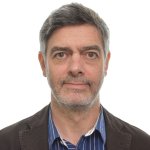
Professor Dorje Brody
Professor in Mathematics
Biography
I am a Professor in the Department of Mathematics at the University of Surrey. My research interests include foundations of quantum theory, quantum biology, mathematical psychology, and financial modelling.
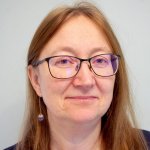
Professor Anne Skeldon
Head of School of Mathematics & Physics, Professor of Mathematics
Biography
I am a mathematician with a keen interest in applying mathematics in the real world. My background is in dynamical systems and bifurcation theory.
Much of my early work was in pattern formation and fluid mechanics, particularly the Faraday wave problem. More recently I have shifted towards biology/sociology. I was a co-investigator on the 6 year complexity science project, Evolution and Resilience of Industrial Ecosystems. I am part of the Mathematics of Life and Social Sciences research group. I co-lead the cross-faculty Centre for Mathematical and Computational Biology
My current research interests are largely centred on sleep and circadian rhythms and data science. I collaborate with researchers at the Surrey Sleep Research Centre developing and analysing mathematical models of sleep-wake regulation. Our work featured in the UK parliamentary debate ``School should start at 10am because teenagers are too tired''. I have a particular interest in the impact of our light environment on sleep, including the impact of permanent DST and on using mathematical models for fatigue risk management.
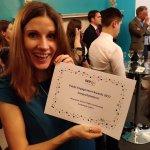
Dr Michelle Collins
Reader (Associate Professor), Associate Dean Doctoral College
Biography
Michelle Collins was awarded a PhD in Astronomy by the University of Cambridge in 2011, where she worked under the supervision of Scott Chapman and Mike Irwin. After receiving her degree, she continued her research for 3 years as a Galaxies and Cosmology fellow at the Max-Planck Institute for Astronomy in Heidelberg. In October 2014, she took up a Hubble Fellowship at Yale University, working alongside Marla Geha and her research group. She officially joined the University of Surrey as a lecturer at the same time, and will be permanently based at Surrey from October 2015. Her research focuses on the observations of Local Group galaxies, particularly on performing resolved stellar spectroscopy in Andromeda and its dwarf galaxies in order to constrain dark matter models, and the processes governing galaxy evolution.

Dr Payel Das
UKRI Future Leaders Fellow
Biography
I have a PhD in Astrophysics from the Max Planck Institute for Extraterrestrial Physics in Germany. I then left Astrophysics for a few years and explored how we can optimally design homes for energy efficiency and comfort at UCL before returning to Astrophysics as a PDRA at the University of Oxford. I am currently a UKRI Future Leaders Fellow in the Astrophysics research group at Surrey, working on the GLEAM project.
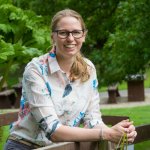
Dr Caroline Shenton-Taylor
Senior Lecturer in Applied Nuclear Physics
Biography
Caroline is a Applied Nuclear Physics Senior Lecturer and leads the Nuclear Applications and AI Surrey Group, addressing challenges within nuclear security, nuclear decommissioning, nuclear forensics, nuclear medicine and health monitoring.
Alongside her research and teaching, Caroline is passionate about scientific exchange and runs the YouTube channel Dr CST She was the season 2 and 3 co-host of the Surrey Speaks Podcast, and has contributed to Radio 4, local radio and numerous festival and outreach events. Explore more of Caroline's outreach work on her Dr CST website.
Caroline obtained her PhD in the field of Magnetic Compton Scattering in 2007 from the University of Warwick. Working with synchrotron X-rays, she explored a range of magnetic materials with applications including enhanced computer memory and innovative refrigeration. From 2007 to 2017 Caroline transitioned into industry, leading a diverse portfolio of scientific research projects on behalf of the UK Ministry of Defence and UK Home Office. Throughout this time Caroline was the Team and Technical Lead for an interdisciplinary research team, focused on the development of novel methods to detect the presence of radiological and nuclear materials. in 2017 she joined the University of Surrey forming the Nuclear Applications and AI team.
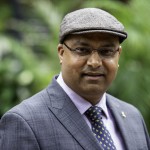
Professor Prashant Kumar
Co-Director, Institute for Sustainability, Professor and Chair in Air Quality and Health; Founding Director, Global Centre for Clean Air Research (GCARE)
Biography
Prof Kumar is a founding Co-Director of the pan-university Institute for Sustainability, Professor & Chair in Air Quality and Health, and founding Director of the internationally-leading research centre Global Centre for Clean Air Research (GCARE) at the University of Surrey, UK. He is the founder of successfully running Guildford Living Lab, a Trustee at Zero Carbon Guildford (ZERO), an Adjunct Professor at Trinity College Dublin, Ireland; and a Guest Professor at Southeast University, China.
He joined the Senior Leadership team of the Faculty of Engineering and Physical Sciences as an Associate Dean (International) in 2020 and subsequently took up another senior leadership role to help setup the new pan-University Institute for Sustainability as a founding Co-Director in 2023. As an Associate Dean (International), he worked on implementing the University's Global Strategy and provided leadership to the international agenda, including student recruitment, transforming the PGR international placements through Turing and other mobility schemes, building several successful international research partnerships, coordinated numerous UG and PGT partnerships and joint PhD programmes, and led the QS submission for the University as a 'QS Impact Champion'.
Earlier, he served as a Reader (2015-2017), Senior Lecturer (2012-2015) and Lecturer (2009-2012) before promoting to Chair and Full Professor of Air Quality and Health (2017-) at the University of Surrey. He was the Deputy Director of Research for the Department of Civil & Environmental Engineering during 2018-2021.
An engineer by training, Prof Kumar obtained his PhD (Engineering) from the University of Cambridge (UK) after winning a Cambridge-Nehru Scholarship and Overseas Research Scholarship award. He earned his Master's Degree in Environmental Engineering & Management from the Indian Institute of Technology, Delhi, where he won the ‘Outstanding Postgraduate Student Award’ for his exemplary performance (CGPA 9.8/10 and rank 1). Prior to his PhD, he worked in the construction industry and a CSIR Research Institute for about 7 years.
Prof Kumar has won numerous prizes and awards in recognition of his academic and research excellence throughout his study and academic career. Consequitively in 2022 and 2023, he was bestowed with the global accolade of being recognised in the top 1% of ‘Highly Cited Researchers’ by Clarivate. The award reinforces Prof. Kumar’s ‘significant and continued broad’ contribution across scientific fields as one of the world’s top-cited researchers in Web of Science. He was the winner of the University of Surrey’s Vice-Chancellor award ‘Researcher of the Year’ in 2017. His research on air pollution reduction through green infrastructure earned him the 2023 Haagen-Smit Prize for Best Paper.
Professor Kumar was honoured by the California Air Resources Board with the prestigious 2023 Haagen-Smit Clean Air Award - an accolade regarded as the 'Nobel Prize' for air quality achievements - for his "transformative contributions, widespread impacts, novel accomplishments, and exceptional leadership and achievements in this field".
His fundamental and application-oriented cross-disciplinary research is focused on the interfaces of clean air engineering, human health and smart/sustainable living in cities/megacities. His current research projects are focused on broad multidisciplinary areas of air pollution monitoring/modelling, low-cost sensing, nature-based solutions, climate change mitigation and developing innovative technological and passive (e.g. green infrastructure) solutions for air pollution exposure control for both developing and developed world. He is currently the lead PI on the UKRI (EPRC, NERC, AHRC) funded RECLAIM Network Plus.
In response to the global public health crisis, Prof Kumar played an active role in the clean air community. He participated in the Royal Society Rapid Assistance in Modelling the Pandemic (RAMP) volunteer initiatives and was part of an international effort making a case to the WHO for the recognition of airborne transmission. Among others, his team studied the impact of lockdown on air quality in different cities, including ODA countries, and how different types of face masks can offer protection from the infection of SARS-CoV-2 in public built spaces.
A prolific author with over 400 journal articles (and the same number of conference presentations and articles), his research has attracted over 27,000 citations, with an h-index of 80 (i10-index, 338). These include several highly downloaded, cited and almetrics articles, new directions around air quality challenges, wood burning, climate change and cities, and agenda-setting papers in the area of low-cost sensing, green infrastructure design, ultrafine particles, non-exhaust emissions, smart homes, nature-based solutions and particles and policies.
He has secured over £14M of individual research funding from projects total worth over £30M, funded by the RCUK (e.g, EPSRC, ESRC, NERC, AHRC, MRC, HEFCE, British Council, Innovate UK, Research England, GCRF), industry, international funding bodies (e.g., European Commission, Qatar National Research Foundation, Commonwealth Commission, FAPESP) and charities (e.g. Ove Arup Foundation, RSA, Impact on Urban Health, Global Action Plan).
He serves on editorial boards of several international journals (e.g. Scientific Reports) and scientific evaluation panels of numerous funding agencies. He is Editor-in-Chief of the air quality section of the ‘Atmosphere’ journal (since July 2020) and founding Speciality Chief Editor of the ‘Climate Change & Cities' section of Frontiers in Environmental Science journal. He serves the editorial board of several reputed journals (e.g. Scientific Reports) and is Editor-in-Chief for the ‘Atmosphere’ journal (since July 2020) and founding Speciality Chief Editor of the ‘Climate Change & Cities' section of Frontiers in Environmental Science journal.
He is a reviewer and advisor to scientific evaluation panels of numerous funding agencies in the UK (e.g. NERC, EPSRC) and outside (e.g. Austrian Science Fund) and sits on the scientific advisory board of a number of companies. He advises local councils, and national and international governmental bodies on air pollution and urban nexus.
He has developed a network of collaborators across four continents. His research has featured regularly in well-read media outlets such as the BBC and The Times. Further information on his work can be found on the GCARE website.

Dr Bing Guo
Professor in Environmental Engineering and Microbiology
Biography
Dr Bing Guo is a Professor at the Department of Civil and Environmental Engineering, School of Engineering, and Institute for Sustainability fellow and Programme Lead on Water Innovation and Sustainability.
She joined the University of Surrey as a Lecturer (Assistant Professor) in Civil and Environmental Engineering in 2020. She received her PhD and MEng in Civil Engineering from McGill University, Canada, and BEng in Environmental Engineering from Beijing Normal University, China.
Prior to joining Surrey, she was awarded the Quebec Postdoctoral Research B3X scholarship in 2019 as a joint postdoctoral fellow at the University of Alberta, Canada and Delft University of Technology, Netherlands.
Her research interests include microbial ecology modelling (immigration theory, microbial interactions and networks), environmental biotechnology for waste to energy and wastewater treatment (anaerobic digestion, anammox, symbiotic biofilms), antimicrobial resistance (AMR) in environment, omics and bioinformatics tools, with funding support from multiple research councils (BBSRC, EPSRC, NERC, RS) in collaboration with water companies and biogas industry.
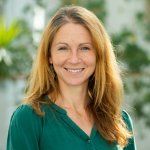
Professor Melanie Bailey
EPSRC and Professorial Research Fellow Director BBSRC SEISMIC facility
Biography
Dr. Melanie Bailey is a Reader in Chemistry at the University of Surrey, and is currently working on an EPSRC funded fellowship. She obtained her Bsc. in Physics in 2001 from the University of Manchester and her PhD in Electrical Engineering from the University of Surrey Ion Beam Centre in 2005.
Dr. Bailey was Ion Beam Analysis Liaison Fellow for the Surrey Ion Beam Centre from 2007-2011, where she worked with users of the facility to gain high resolution trace element maps and profiles. During this time, she began working with various law enforcement agencies to develop ion beam analysis methods in forensics and has worked as a consultant of the International Atomic Energy Agency to set up a global coordinated research programme on nuclear techniques in forensics.
Dr Bailey joined the department of Chemistry in 2011 to lecture in forensic science.
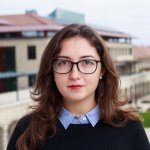
Dr Melis Duyar
Senior Lecturer in Chemical and Process Engineering
Biography
Dr. Melis Duyar is Senior Lecturer of Chemical and Process Engineering at the University of Surrey. She has a research background in heterogeneous catalysis for energy and environmental applications. Dr. Duyar received her B.Sc. (2012) in Chemical and Biological Engineering from Koç University in Istanbul, Turkey. She obtained her M.S. (2013) and Ph.D. (2015) in Earth and Environmental Engineering from Columbia University in the City of New York and conducted post-doctoral research (2015-2017) in the Chemical Engineering Department at Stanford University. Prior to her academic appointment at the University of Surrey, Dr. Duyar worked at the US Department of Energy’s SLAC National Accelerator Laboratory as Associate Staff Scientist in the SUNCAT Center for Interface Science and Catalysis and was also Lecturer of Chemical Engineering at Stanford University for 2 years (2017-2019).
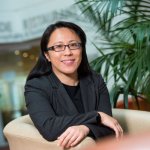
Professor Judy Lee
Professor in Chemical and Process Engineering
Biography
Academic/research positions
- 2025- : Professor, Chemical and Process Engineering, Surrey University
- 2021-2025: Reader, Chemical and Process Engineering, Surrey University
- 2015-2020: Senior Lecturer, Chemical and Process Engineering, Surrey University
- 2012-2015: DECRA Postdoctoral Fellow (Assistant Lecturer), Chemical and Biomolecular Engineering, Melbourne University, Australia
- 2010-2012: Postdoctoral Fellow, Chemical and Biomolecular Engineering, Melbourne University, Australia
- 2007-2009: JSPS Postdoctoral Fellow, Advanced Industrial Science and Technology (AIST), Japan
- 2006-2007: Postdoctoral Fellow School of Chemistry, Melbourne University, Australia
Areas of specialism
- Acoustic cavitation: Bubble dynamics, Sonoluminescence, Bubble Coalescence, Surfactants etc.
- Ultrasonic processing/synthesis: Crystallisation, Dairy Materials, Wastewater treatment, Emulsions, Nanoparticles, Microspheres etc.
- Membrane filtration: Wastewater treatment and recycling, nano/micro plastic remediation, Dairy whey etc.

Dr Robert Siddall
Lecturer in Robotics
Biography
A PhD position in robotic ecosystem monitoring is currently available (deadline Friday 12 January, 2024): https://www.findaphd.com/phds/project/scenario-a-robotic-ecologist-for-automated-habitat-monitoring/?p164369
I'm an aerospace engineer and roboticist with an enthusiasm for unconventional mechatronics, who is interested in understanding the mechanics of animal locomotion for the benefit of synthetic locomotion, particularly flight. I received my Master’s degree in Aerospace Engineering from the University of Cambridge and my PhD in Aeronautics from Imperial College London, where my thesis on Aerial-Aquatic locomotion won the ‘Best UK PhD in Robotics Award’. Before moving to Surrey I worked at the Max Planck Institute for Intelligent Systems in Stuttgart, Germany, where I studied the arboreal acrobatics of rainforest-dwelling reptiles. I have also been the engineering lead in an ESA-funded startup, where I helped develop a unique agricultural robot.
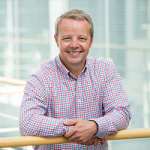
Professor Adrian Hilton
Director Surrey Institute for People-Centred AI | Director of Centre for Vision, Speech and Signal Processing
Biography
In January 2012 I became Director of the Centre for Vision, Speech and Signal Processing (CVSSP) at the University of Surrey. CVSSP is one of the largest UK research groups in Audio-Visual Machine Perception with 170 researchers and a grant portfolio in excess of £31M. CVSSP research spans audio and video processing, computer vision, machine learning, spatial audio, 3D/4D video, medical image analysis and multimedia communication systems with strong industry collaboration. The centre has an outstanding track-record of pioneering research leading to successful technology transfer with UK industry.
The goal of my research is to develop seeing machines with the visual sense to understand and model dynamic real-world scenes. For example, measuring from video the biomechanics of an Olympic athlete performing a world-record high-jump.
My research is pioneering the next generation of 4D computer vision, capable of sensing both 3D shape and motion, to enable seeing machines that can understand and model dynamic scenes. Recent research introduced 4D vision for analysis in sports, for instance, measurement of football players from live TV cameras. This technology has been used by the BBC in sports commentary to visualise the action from novel directions, such as the referee or goalkeepers view.
I have successfully commercialised technologies for 3D and 4D shape capture exploited in entertainment, manufacture & health, receiving two EU IST Innovation Prizes, a Manufacturing Industry Achievement Award, and a Royal Society RS Industry Fellowship with Framestore on Digital Doubles for Film (2008-11). I am a Royal Society Wolfson Research Merit Award holder in 4D Vision (2013-18) and is currently PI on the S3A Programme Grant in Future Spatial Audio at Home combining audio and vision expertise and InnovateUK project ALIVE, led by The Foundry, developing tools for 360 video reconstruction and editing.
I lead the Visual Media Research (V-Lab) in CVSSP, which is conducting research in video analysis, computer vision and graphics for next generation communication and entertainment applications.
My research combines the fields of computer vision, machine learning, graphics and animation to investigate new methods for reconstruction, modelling and understanding of the real world from images and video.Applications include: sports analysis (soccer, rugby, athletics), 3D TV and film production, visual effects, character animation for games, digital doubles for film and facial animation for visual communication.
Current research is focused on video-based measurement in sports, multiple camera systems in film and TV production, and 3D video for highly realistic animation of people and faces. Research is conducted in collaboration with UK companies in the creative industries.From 2008-12 I was supported by a Royal Society Industry Fellowship to conduct research with leading visual-effects company Framestore investigating 4D technologies for Digital Doubles in film production.
Please contact me if you are interested in current PhD and post-doctoral research opportunities.
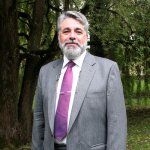
Professor Alan Woodward
Biography
Professor Alan Woodward is an internationally renowned computer security expert with particular expertise and current research interests in cyber security, covert communications, forensic computing and image/signal processing.
Alan began his academic career as a physicist. However, he developed an interest in computing early on through signal processing for gamma ray burst detectors, and so switched to engineering after being an undergraduate at the Department of Physics & Astronomy. His post graduate research at the Institute of Sound and Vibration Research (ISVR), University of Southampton, was in adaptive filtering, and novel methods of recovering corrupted signals. Alan also worked on novel methods of noise cancellation, both passive and active.
After leaving the ISVR Alan worked for the UK government for many years. He continues to provide advice to governmental organisations such as Europol through the European Centre for Cyber Crime (EC3), as well as private sector organisations as an independent consultant.
Alan has been involved in some of the most significant advances in computer technology which have seen him elected as a Fellow of British Computer Society, Institute of Physics and the Royal Statistical Society. He is also a Chartered Engineer, Chartered IT Practitioner, and a Chartered Physicist.
In addition to his academic and government work, Alan has filled senior management roles in businesses focussed on various aspects of Information Technology (IT). In 2000 Alan was pivotal in the flotation of Charteris plc on the London Stock Exchange. He remained a director until 2008 at which point he began to focus back on his academic interests. Alan continues to be a director of businesses involved in IT.
Although Alan has been at the leading edge of technology development for many years, he is primarily a particularly good communicator. He is known for his ability to communicate complex ideas in a simple, yet passionate manner. He spends an increasing amount of his time on public engagement in STEM. Alan not only publishes in the academic and trade journals but has articles in the national press and comments on TV and radio.
Just a sample of the stories Professor Woodward has contributed to includes:
High-tech Cold War between China and the West can only end in conflict – The Times
Email Error ‘like handing over your keys’ – BBC
Security firm hijacks high-profile Twitter accounts – BBC
British Airways breach: How did hackers get in? – BBC
Hackers ‘targeting US mid-term elections’ – BBC
Decade-old flaw in Twitter allows hackers to spread ISIS propaganda using old accounts – The Telegraph
If you say your device is ‘unhackable’, you’re just asking for it – The Register
Is your computer slower than normal? – The Daily Mail

Dr Andrew Rogoyski
Director of Innovation and Partnerships at the Surrey Institute for People-Centred AI
Biography
I am a business leader, strategist and technologist with experience spanning 30 years in industry, government and academia. Following completion of my PhD in laser-generated plasmas, I worked at the Rutherford Appleton Lab in a variety of areas including x-ray lasers and inertial confinement fusion, working with international labs such as the Naval Research Lab, the Ecole Polytechnique and others. I subsequently moved to industry, joining Logica to lead a group specialising in signal and image processing, including early AI systems, progressing to Operations Director of the Space & Defence Division before joining space consultancy Esys, subsequently working as MD of QinetiQ’s Space Division. Focusing on security technologies, I joined Charteris, then DS&S, both providing strategic advice to government in the fields of innovation and cyber security. Seconded to the Office of Cyber Security and Information Assurance in the Cabinet Office, I authored the first UK cyber export strategy and contributed to new export controls for cyber. I then joined CGI as Vice President of a new UK cyber business and after several successful years, joined Roke Manor Research as their Innovation Director. Coming full circle back to academia, I have now taken on the role of Director of Innovation and Partnerships development for the new Surrey Institute of People-Centred Artificial Intelligence at the University of Surrey. I also act as advisor to TechUK's Management, Finance and Performance Board and NatWest Group’s Technology Advisory Board.
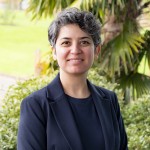
Dr Bahareh Heravi
Associate Professor (Reader) in AI and Media
Biography
Dr Bahareh Heravi is a Reader in AI and Media at the Surrey Institute for People-Centred AI and a globally leading expert in AI and Journalism. Her research is primarily focused on Data & Computational Journalism, data storytelling, responsible and inclusive AI, information design, and the use of AI in journalism and media. She is currently a BRAID Fellow with BBC R&D, working on Enhancing Responsible AI Literacy in Journalism.
Bahareh is a founding co-chair of the European Data & Computational Journalism Conference and a steering committee member of the Computation + Journalism Conference. She sits on the Irish Government's Open Data Governance Board, and serves on the EDI advisory board of the Royal Statistical Society. She also acts as an expert evaluator and project monitor for the European Commission and the Research Data Alliance, and is a Visiting Fellow at the Microsoft–UCD Centre for Digital Policy.
Before joining the University of Surrey in 2022, Bahareh was based at University College Dublin (UCD), where she served as the Postgraduate Director of the School of Information & Communication Studies. She was the founding director of the UCD Data Journalism Programme, a member of the Graduate School Board at the College of Social Sciences and Law, and a member of UCD's central Application Steering Group. Additionally, she sat on the Academic Oversight Committee of the UCD Professional Academy and was a member of the Race and Ethnic Equality working group at UCD EDI. She also served as a working group member for the Irish National Open Research Forum, contributing to national-level discussions on open research policy in Ireland.
Previous to that Bahareh was a Research Group Leader at the Insight Centre for Data Analytics at the National University of Ireland Galway, where she founded the Insight News Lab (a.k.a Digital Humanities and Journalism research group) and led a number of R&D projects in collaboration with industry partners such as RTÉ (Irish national TV and Radio Broadcaster). During 2014 and 2015, she worked as the Lead Data Scientist at the Irish Times and co-founded the Irish Times Data section.
Prior to her academic work, Bahareh worked over 10 years in the industry, designing, developing and managing Information Systems in various small, medium and large organisations in different sectors. She co-founded a successful software development company when she was 19 and sold her shares nearly 10 years later in 2010.
Dr Heravi was selected as one of Silicon Republic's Sci-Tech 100, and was named one of "22 high-flying scientists making the world a better place" in 2019.
News
Dr Heravi accepts PhD students in the areas of AI and Journalism, AI and Media, Digital Media Inclusion, Inclusive AI design, and Intersectional AI. [closed for 2025/2026 – she is not currently accepting new PhD students, except for candidates on our CDT programme].
Fully funded PhD studentship in Responsible AI Literacy in Journalism. [closed]
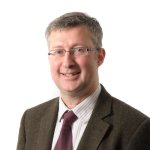
Professor Keith Ryden
Head of Surrey Space Centre, Professor in Space Engineering
Biography
Professor Ryden is currently Interim Director of the Surrey Space Centre, a research unit within the School of Computer Science and Electronic Engineering. The Centre focusses on space applications, exploration and instrumentation and has a long history of building practical space instruments, experimental satellites and leading missions.
Keith’s own field of research concerns the effects of space weather and radiation on satellites, aircraft and ground systems and how to protect them. He has participated in numerous national and international projects (including with the European Space Agency and NASA) to develop and fly novel space instruments and he uses the data to improve space environment models and engineering approaches. For example, Keith’s own instrument-designs are today used on the European Space Agency ‘Galileo’ constellation and on Japanese Meteorological satellites to measure the hazardous high energy electron environment. He has strong research links with the UK Met Office and UK Ministry of Defence as well as with the space industry generally. Keith is currently a member of the UK Space Environment Impact Expert Group (SEIEG), which advises the UK Government on space weather risks. He is Chartered Engineer and Fellow of the IET.
After graduating from the University of Bath in 1986 with a First Class Honours in Electrical and Electronic Engineering, Keith joined the Royal Aerospace Establishment (RAE), Farnborough, then part of UK Ministry of Defence (MoD), to carry out research into improving the effectiveness and survivability of UK defence satellites. In parallel he completed a part-time MSc in Satellite Communications and Automatic Control Engineering at the University of Surrey, graduating with Distinction. Keith led the design, construction and launch of two 50kg research satellites (STRV1a and STRV1b) for the MoD/DoD which performed their missions successfully from 1994-1999.
Following privatisation of RAE in the late 1990s, he was appointed to the position of Technical Fellow at the successor company QinetiQ (2007) where he led a team dedicated to understanding threats to satellites and providing solutions in particular to support the UK Skynet defence communications satellite system. In 2012 he joined the Royal Academy of Engineering study team examining Extreme Space Weather which reported in 2013. Soon after that he took up a post at the University of Surrey, initially as Reader in Space Engineering.
Keith teaches a masters-level module ‘Space Environment and Protection’ at Surrey which he developed himself, and has lectured in electronic engineering courses and led the running of associated laboratories.
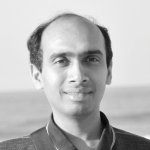
Professor Nishanth Sastry
Professor, Associate Head of Research and Innovation
Biography
Prof. Nishanth Sastry is Associate Head of School for Research and Innovation in the School of CSEE, and leads the Networked Systems Theme within the Surrey Centre for Cyber Security. He is also a Surrey AI Fellow and co-leads the Pan University Surrey Security Network. Nationally, he serves on the REF 2029 sub-panel for Computer Science and Informatics (UoA 11), and is a member of EPSRC’s Digital Security and Resilience Strategic Advisory Team and the Equality, Diversity, Inclusion and Skills Strategic Advisory Network. He is an ACM Distinguished Speaker and co-leads the Social Data Science Interest Group at the Alan Turing Institute for Data Science and AI. His work spans a number of topics related to social media and computer networking, including content delivery, LEO Satellite Networks, web privacy and online harms.
Prof. Sastry holds a Bachelor’s degree (with distinction) from R.V. College of Engineering, Bangalore University, a Master’s degree from University of Texas, Austin, and a PhD from the University of Cambridge, all in Computer Science. Previously, he spent over six years in the Industry (Cisco Systems, India and IBM Software Group, USA) and Industrial Research Labs (IBM TJ Watson Research Center). He has also spent time at the Massachusetts Institute of Technology Computer Science and AI Laboratory.
His honours include a Best Paper Award at SIGCOMM Mobile Edge Computing in 2017, a Best Paper Honorable Mention at WWW 2018, a Best Student Paper Award at the Computer Society of India Annual Convention, a Yunus Innovation Challenge Award at the Massachusetts Institute of Technology IDEAS Competition, a Benefactor’s Scholarship from St. John’s College, Cambridge, a Best Undergraduate Project Award from RV College of Engineering, a Cisco Achievement Program Award and several awards from IBM. He has been granted nine patents in the USA for work done at IBM.
Nishanth has been a keynote speaker, and received media coverage from print media such as The Times UK, New York Times, New Scientist and Nature, as well as Television media such as BBC, Al Jazeera and Sky News.
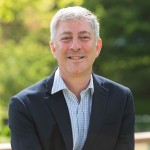
Professor Steve Schneider
Director of Computer Science Research Centre
Biography
I am Director of Computer Science Research Centre which is comprised of the Surrey Centre for Cyber Security (SCCS) and the Nature Inspired Computing and Engineering (NICE) Research Group. I joined the Department of Computer Science in September 2004 and was Head of Department 2004-2010. I was Associate Dean Research and Innovation in the Faculty of Engineering and Physical Sciences from 2015-2019.
I was previously in the Department of Computer Science at Royal Holloway, University of London over the period 1994-2004. I gained my doctorate from the University of Oxford, and held post-doctoral positions there prior to joining Royal Holloway.
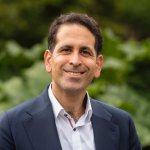
Professor Roi Cohen Kadosh
Head of School of Psychology and Professor of Cognitive Neuroscience
Biography
In 2021 I moved from the University of Oxford to the University of Surrey to take the Headship of the School of Psychology. Here is a short bio:
- I received PhD in Neuropsychology (summa cum laude, direct track) under the supervision of A. Henik from the Ben-Gurion University in 2007
- My postdoc with V. Walsh (UCL) was funded by The International Brain Research Organization and a Marie Curie Intra European Fellowship
- I joined the University of Oxford in 2009 to establish the Cognition, Learning & Plasticity Group
- I received the Professorial Distinction Award of the University of Oxford (2015), thereby becoming a full professor 8 years after completing my PhD
- I founded Cognite Neurotechnology in 2021.
No results
Trending topics
Find an expert by topical subjects in the news and media.
Space

Professor Keith Ryden
Head of Surrey Space Centre, Professor in Space Engineering
Biography
Keith Ryden is the Head of Surrey Space Centre, a world leading Centre of Excellence in Space Engineering.
Cyber security

Professor Alan Woodward
Biography
Professor Woodward is an internationally renowned computer security expert with particular expertise in cyber security, covert communications, forensic computing and image/signal processing. He is Visiting Professor at the University’s Department of Computer Science and is a Fellow of the British Computer Society, Institute of Physics and Royal Statistical Society. A director of IT businesses, he is also a long-standing advisor to governmental organisations including Europol, the European Union's law enforcement agency. Alan is passionate about communicating the importance of safe internet use and is active on Twitter: @profwoodward.
Artificial Intelligence

Professor Adrian Hilton
Director Surrey Institute for People-Centred AI | Director of Centre for Vision, Speech and Signal Processing
Biography
Professor Adrian Hilton is the founding director of the Surrey Institute for People-Centred Artificial Intelligence and the director of the renowned Centre for Vision, Speech, and Signal Processing. A pioneer in 4D computer vision, his research focuses on developing machines that can sense 3D shape and motion. His recent work has introduced 4D vision in sports analysis, including measuring football players from live TV cameras. This innovative technology has been employed by the BBC in sports commentary, offering unique visual perspectives like the referee's or goalkeeper's view.
Areas of expertise:
- General artificial intelligence
- Computer graphics
- 4D vision

Dr Erin Ling
Senior Lecturer in Artificial Intelligence and the Future of Work
Biography
Dr Erin Ling's research expertise is in the applications and implications of artificial intelligence (AI) (opportunities and risks of AI) in different sectors, including services, hospitality, travel, marketing, and human resources. Her work centres around AI transformation in businesses, human-AI interaction, user/consumer behaviour, and the ethical considerations of AI-assisted systems.

Dr Andrew Rogoyski
Director of Innovation and Partnerships at the Surrey Institute for People-Centred AI
Biography
Dr Andrew Rogoyski is Director of Innovation and Partnerships at the Surrey Institute for People-Centred AI. An experienced media communicator, Andrew is a business leader, strategist, and technologist with 30 years of experience in industry, government, and academia.
